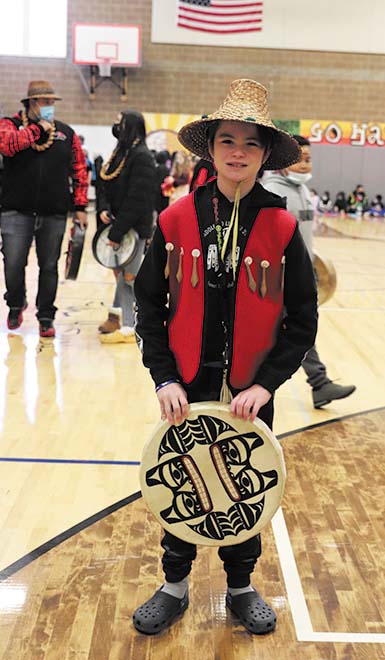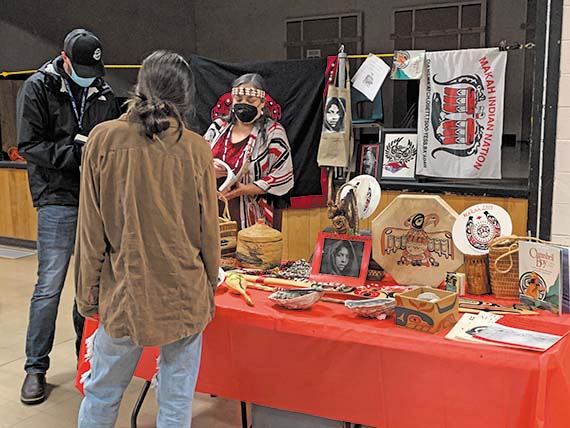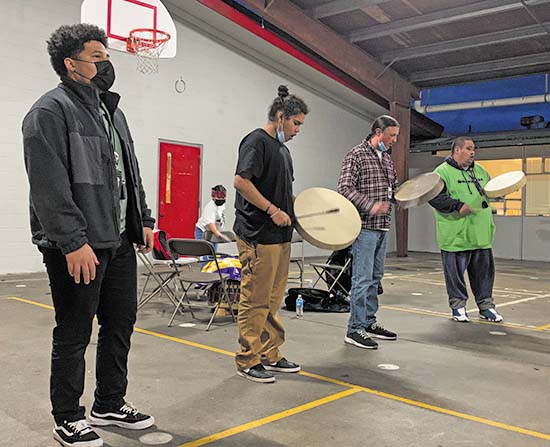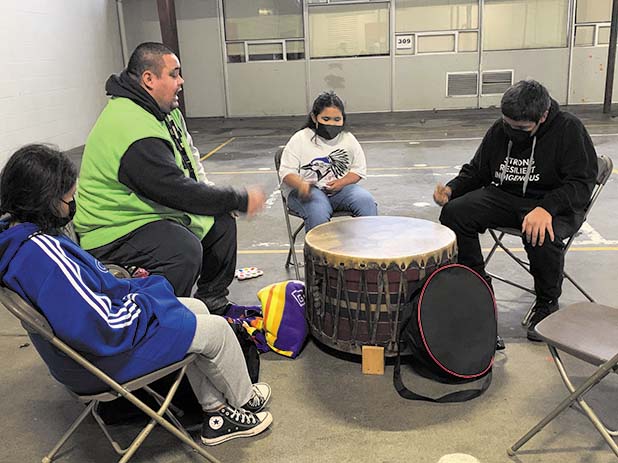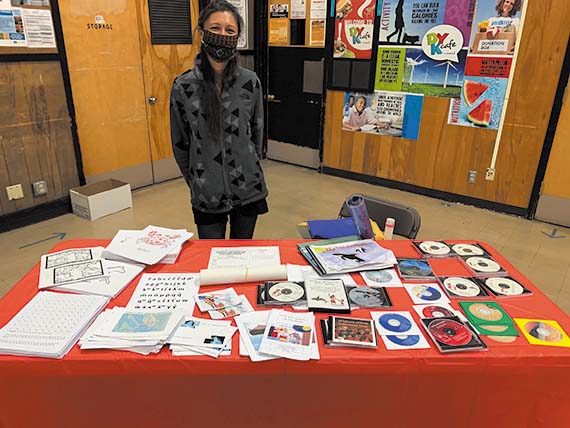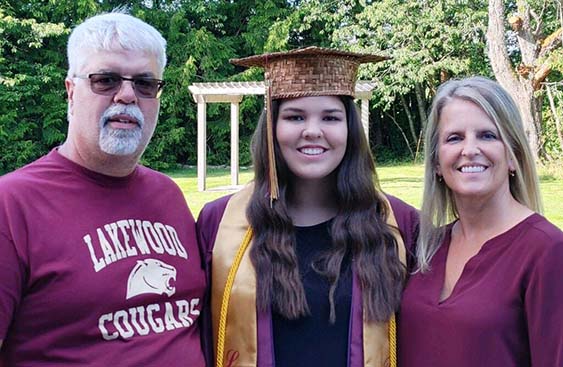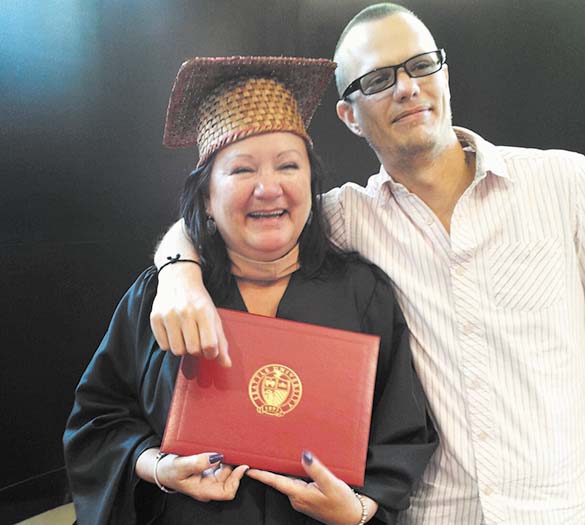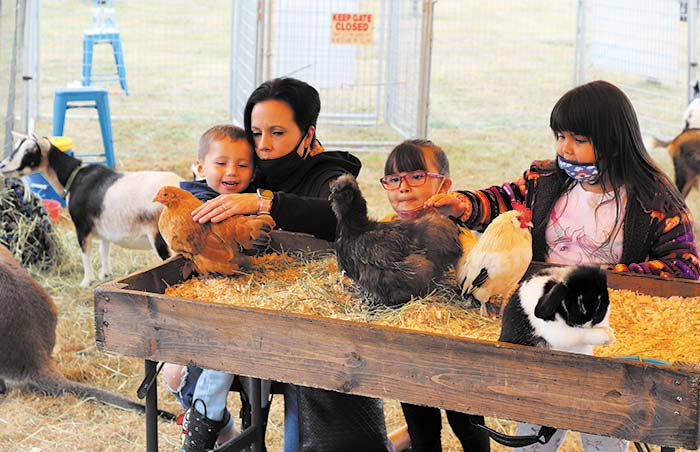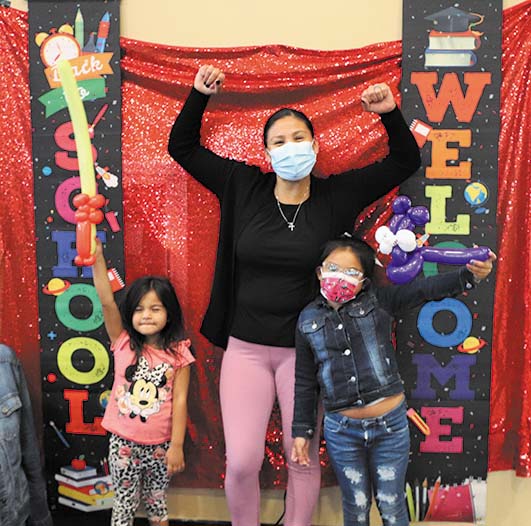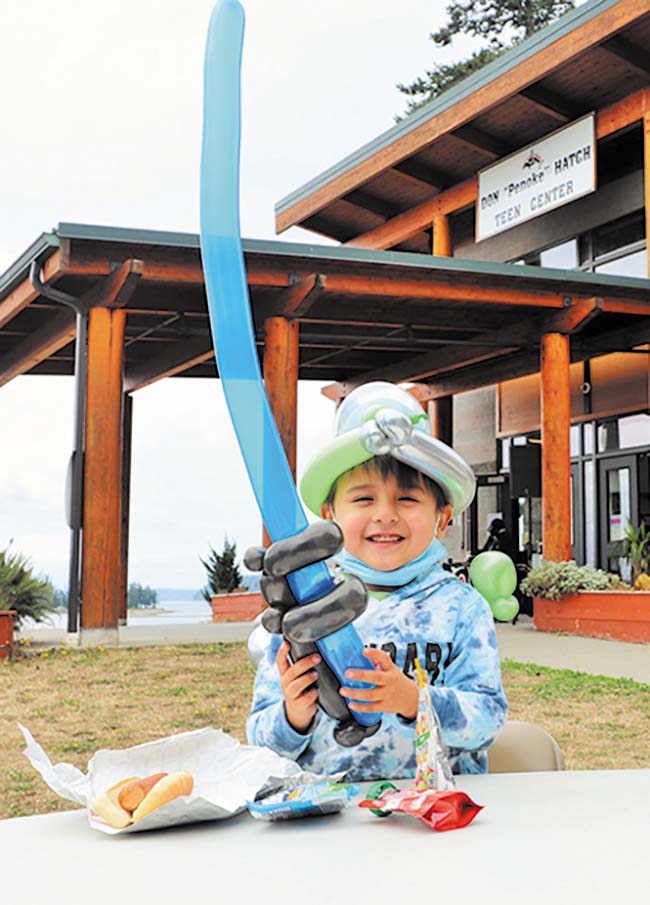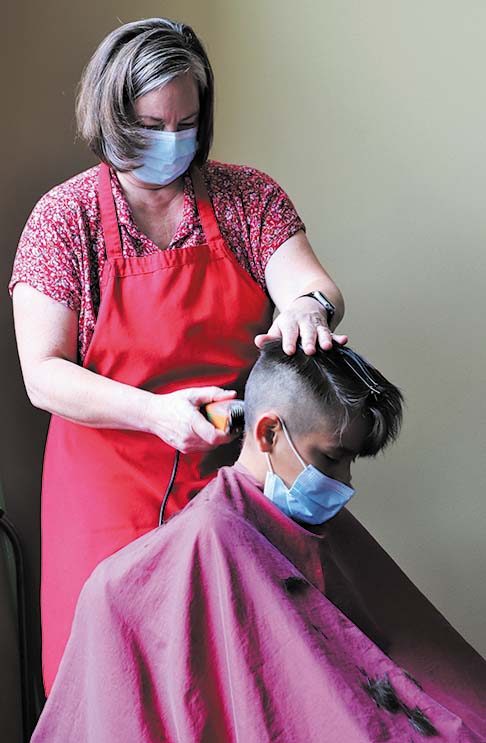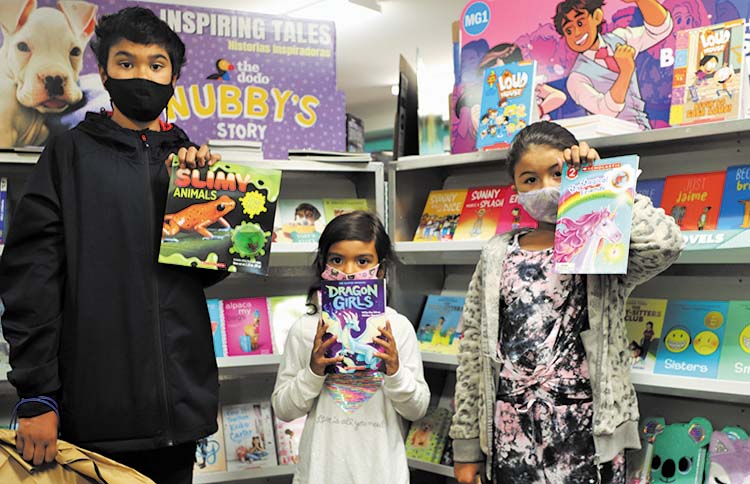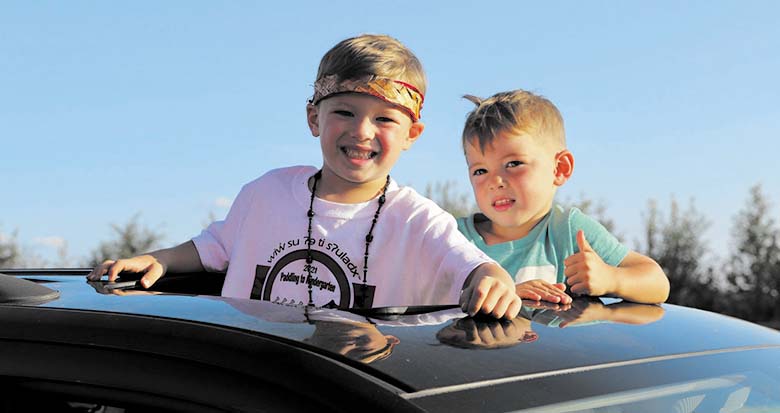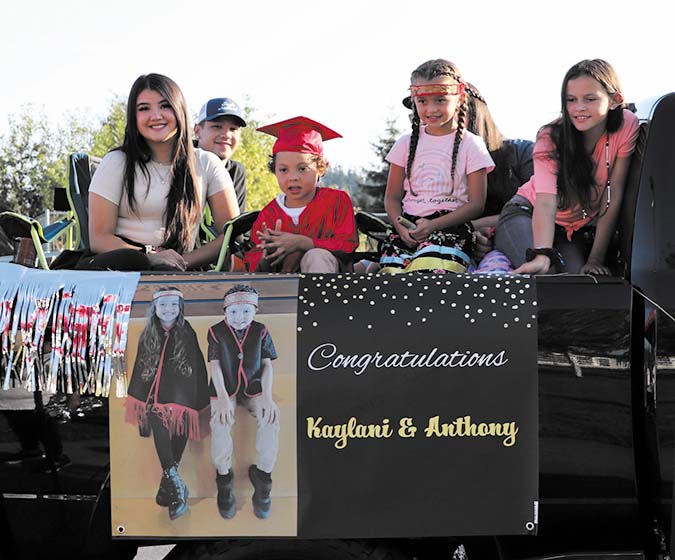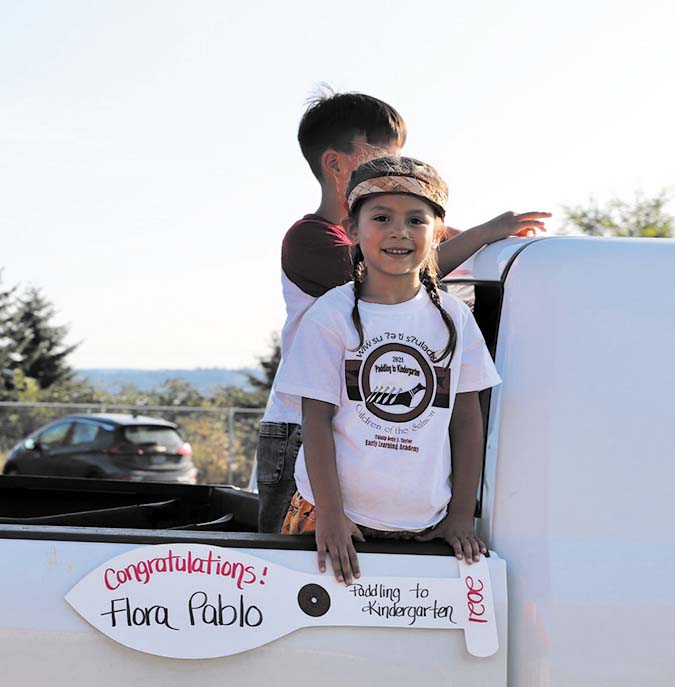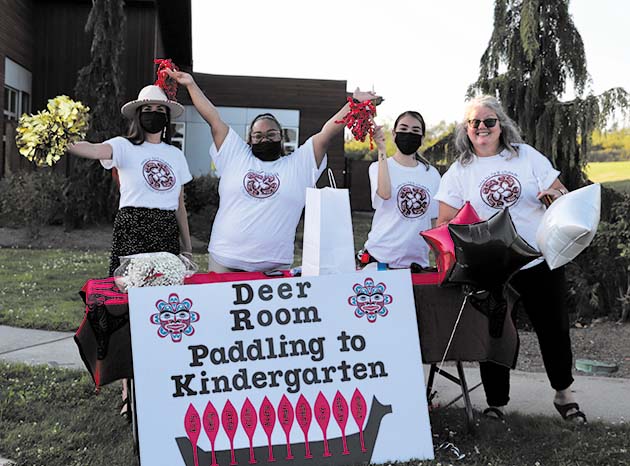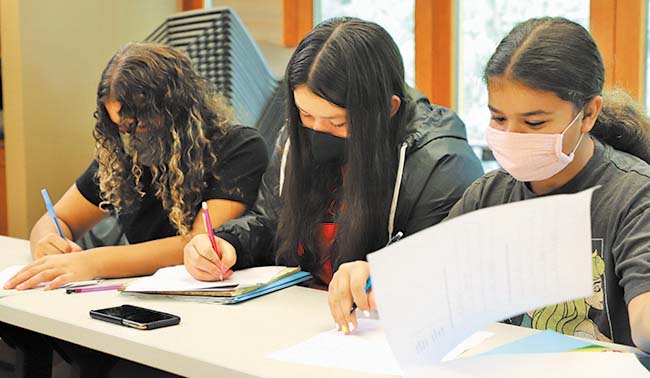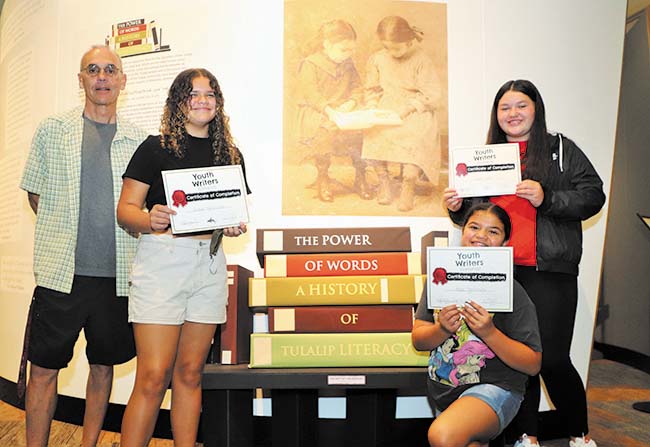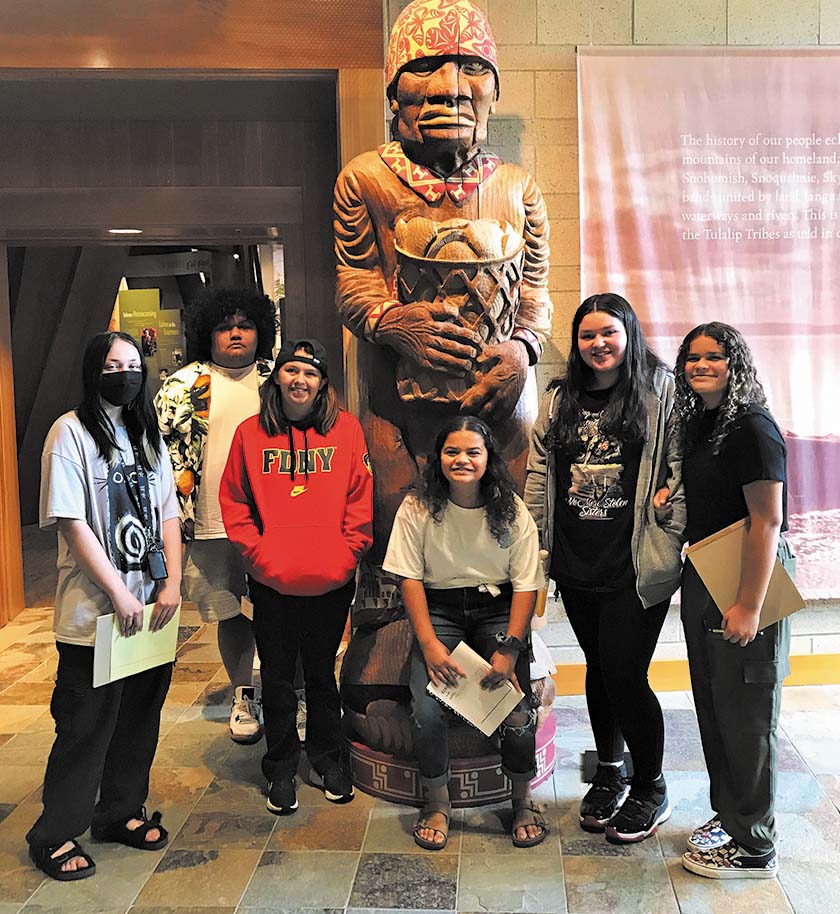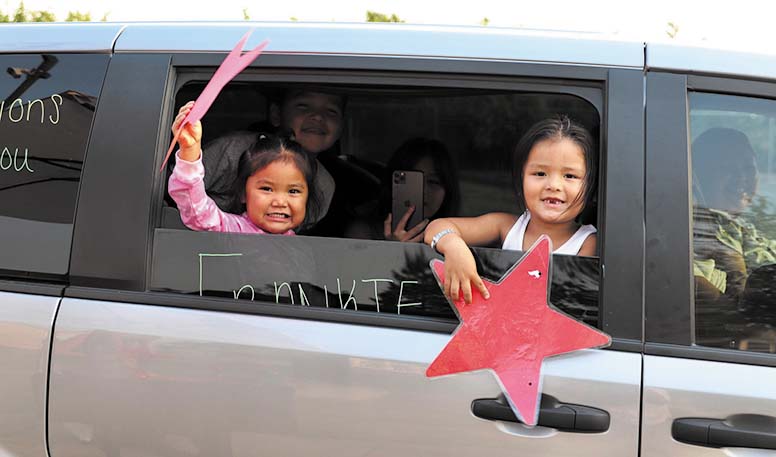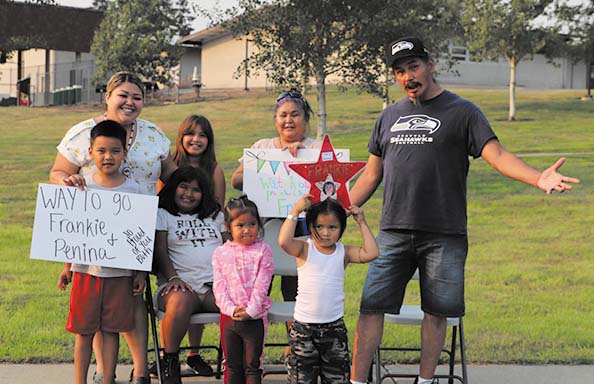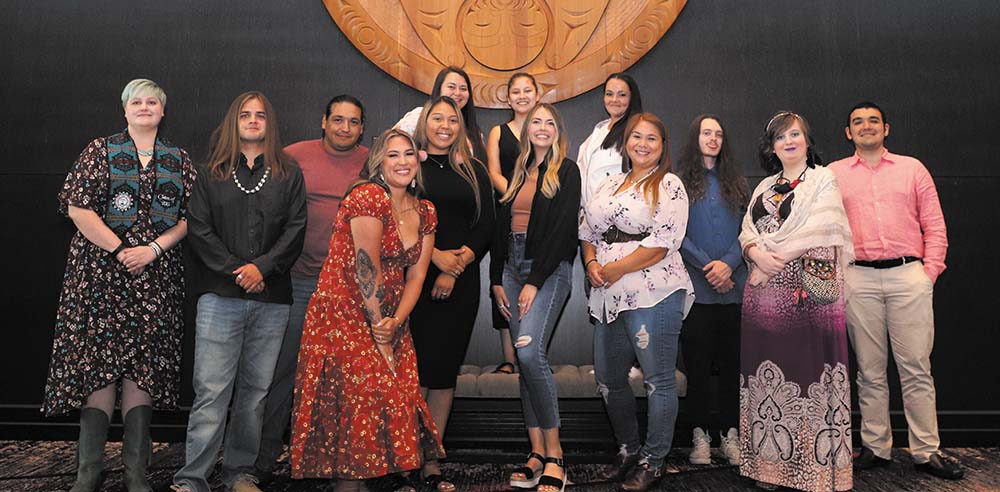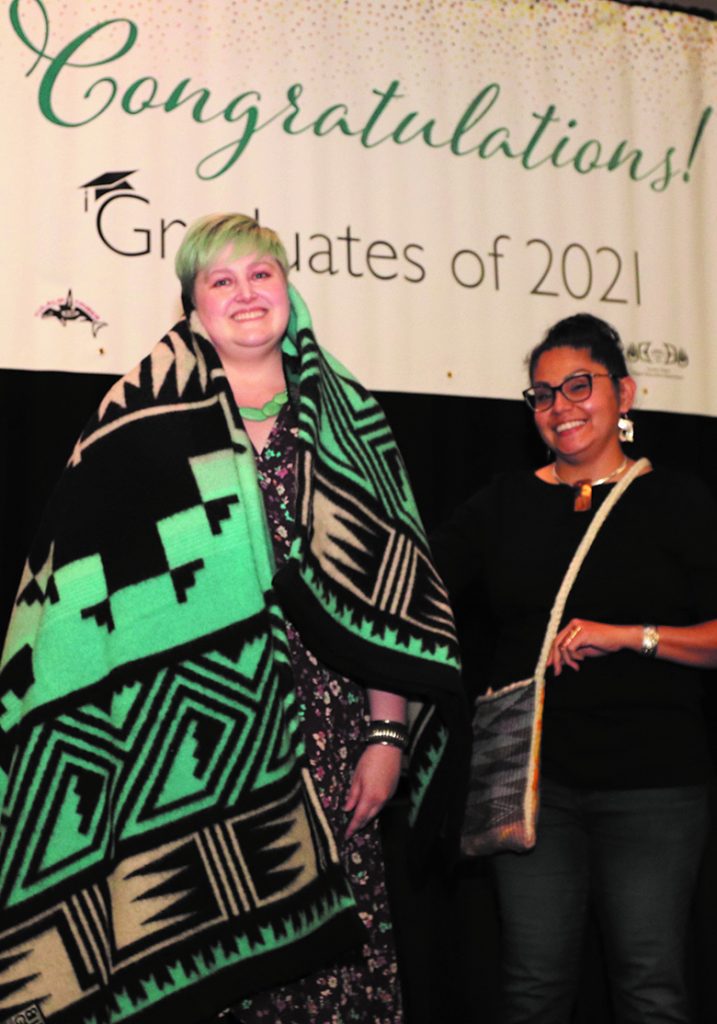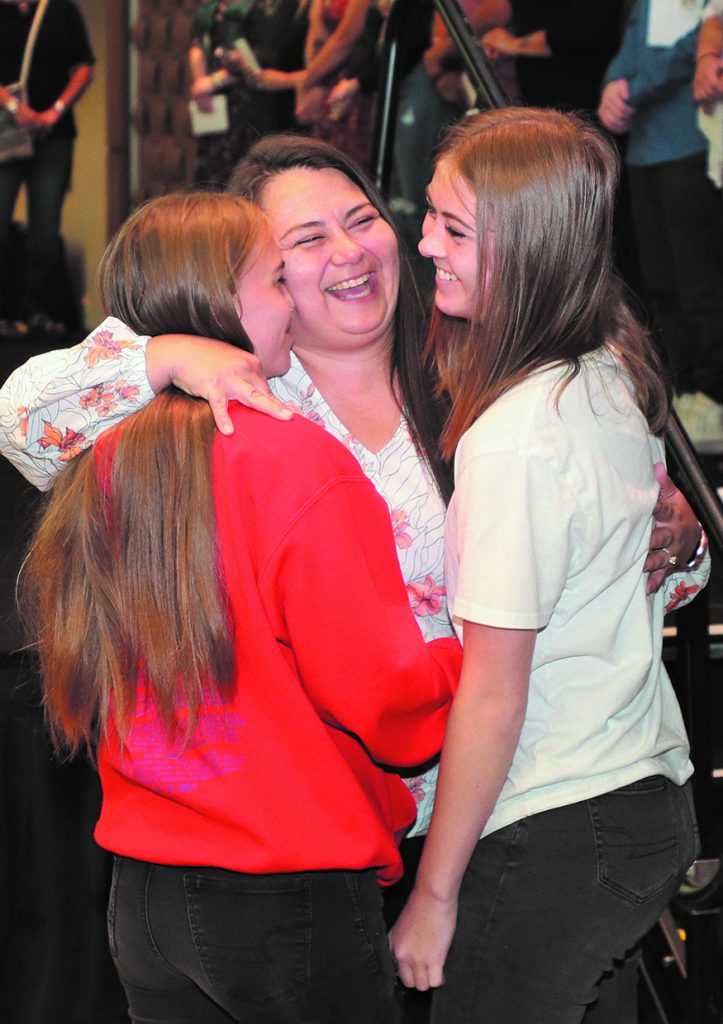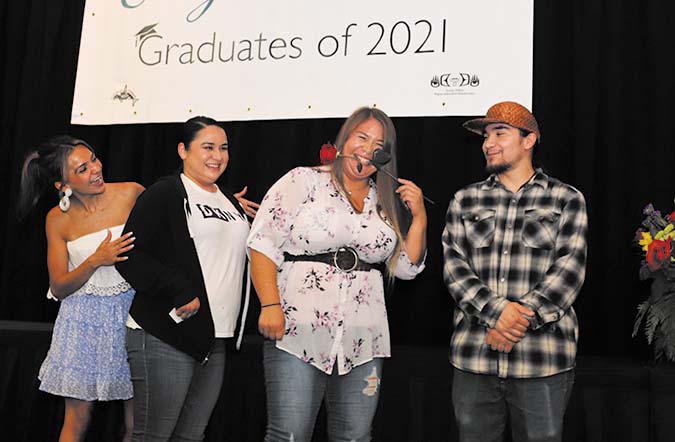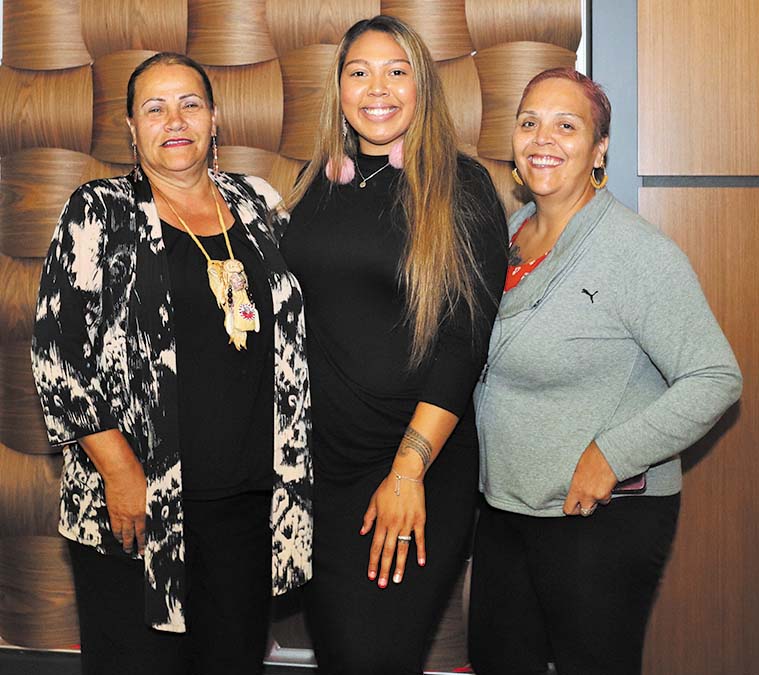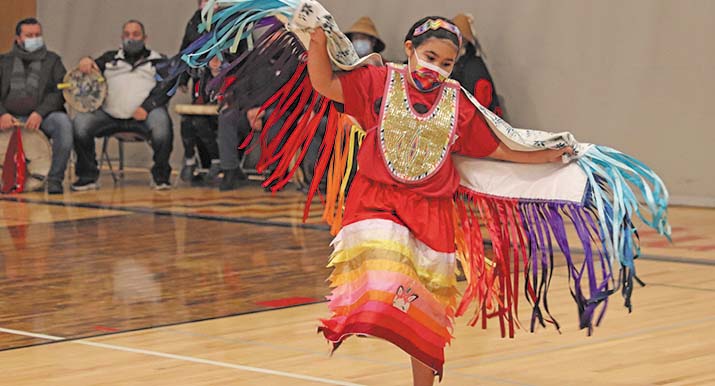
By Kalvin Valdillez, Tulalip News
Prior to a four-day holiday weekend, the students of Quil Ceda Tulalip Elementary (QCT) and Tulalip Heritage High spent the morning of November 24 immersed in Tulalip culture. Engaging in song and dance, and even speaking traditional Lushootseed, the kids were excited to participate in the return of the school’s yearly Tulalip Day celebration.
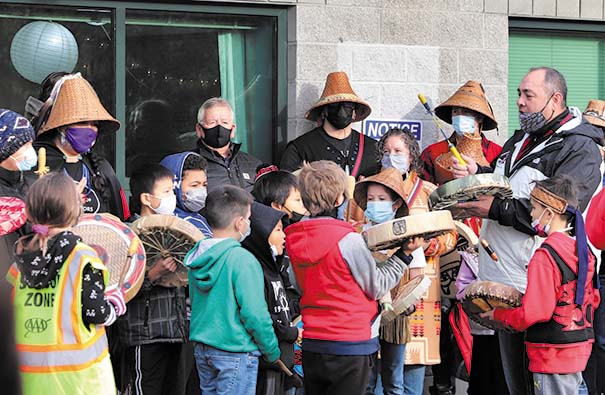
An official holiday for the Tribe and surrounding communities, Tulalip Day is observed on the last Friday of every November and honors the sovereignty, resiliency, heritage, traditions and culture of the Tulalip Tribes.
QCT Vice-Principal Chelsea Craig shared, “This is significant because the colonized education system attempted genocide on our people at the Tulalip boarding school. Every generation since then, our people have not been able to be proud of who they are and be their full-selves in public school systems. We’re changing the paradigm of that. We are providing a place where every person can be proud of who they are, no matter what culture they come from, and know that we are one community, one family. We are reclaiming Indigenous space in a public school system that aimed to erase that.”
Before joining the high schoolers, the elementary students gathered at the front of their school to pay tribute and learn a little bit about the Tulalip Tribes killer whale flag.
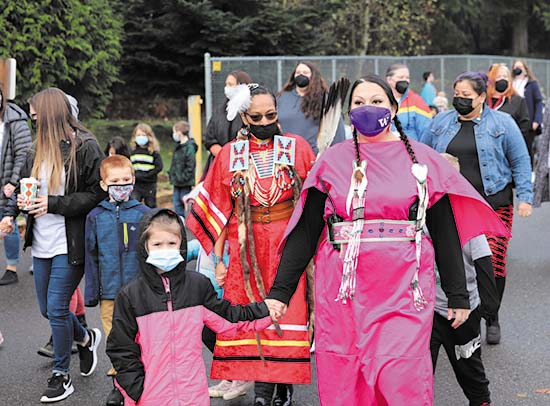
“We started today’s celebration with a flag ceremony because the Marysville School District has adopted raising the Tulalip Tribes flag at all campuses,” explained Chelsea. “From the leadership of JJ Jenson, our former vice-principal, he worked with our Tulalip veterans to raise the Tribe’s flag many years ago. We’ve been raising our tribal flag on our sovereign land for many years and we wanted to honor that work today.”
Led by Tony Hatch, Tulalip Tribes Vice-Chairman Glen Gobin and several tribal leaders, the students offered a Tulalip Canoe Family song, about the importance of pulling together, which represented the partnership between the Tribe and the Marysville School District.
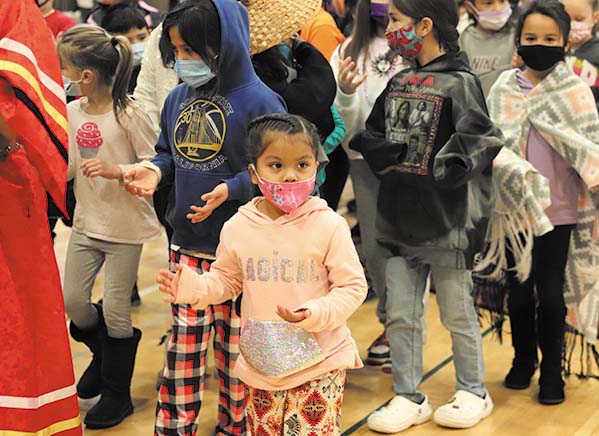
All students were encouraged to wear their traditional regalia on Tulalip Day and a number of beautifully designed shawls, vests, blankets, ribbon skirts, beaded jewelry and cedar-woven hats and headbands were on full-display.
When the flag ceremony concluded, the QCT students marched across campus to the Francy J. Sheldon gymnasium where Heritage students awaited their arrival, excited to get the festivities started.
Glen Gobin opened the ceremony and shared a few words about the importance of Tulalip Day with the students.
He stated, “I am proud to witness this event and see all of the changes that have taken place. When I think back to when my grandmother went to school, she went to the boarding school here at Tulalip, and everything they did in that school was to strip them of their identity and deny them of being Native American. They tried to force them into assimilation into a non-Indian society.
“We didn’t have the ability to go to school and exercise who we are and feel good about doing it, because we were still trying to fit in. To walk in here and see all the smiling faces, all of your pride, and to feel that is amazing. How far we’ve grown in that ability to be who we are and proud of who we are, that is important. That is what this day means. That’s what this month means, that recognition. Who you are, where you come from, to build that foundation so you can succeed in the future and pass on those teachings, those traditions, in a good way.”
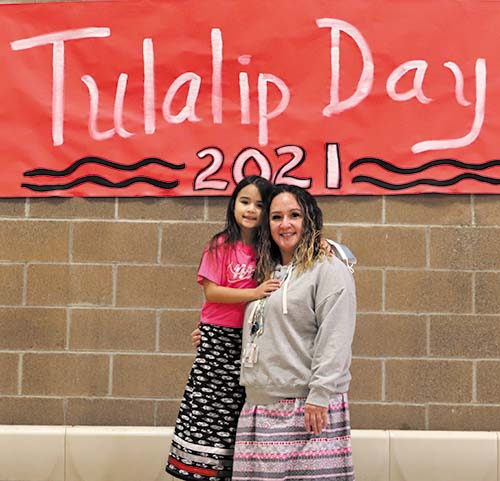
Since November is also Native American Heritage month, Chelsea opened the floor up to all Indigenous nations, inviting everybody to share their culture with the students. MSD Native Liaisons, Terrance Sabbas and Matt Remle, sang a number of songs from their respective tribes throughout the hour-long ceremony, both on the round drum and their hand-drums, while powwow dancers took the floor, performing both traditional and fancy shawl.
To end the Tulalip Day celebration, Chelsea invited the drummers to the floor and encouraged all the students to take part in either signing and drumming or dancing. The bleachers were emptied as the drummers sang a potlatch song that is well-known through all Coast Salish territories and is played at various tempos. As the speed of the song gradually increased, so did the smiles and laughter throughout the entire gym.
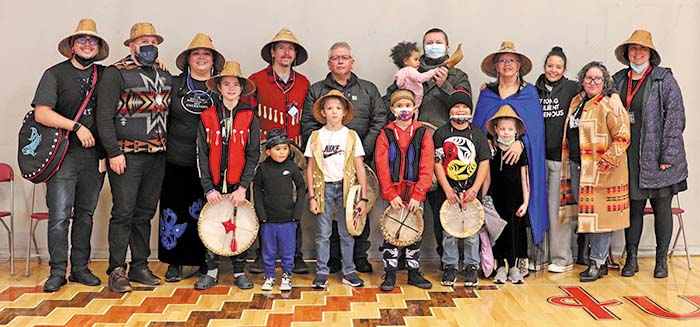
“A lot of our ceremonies have been canceled because of COVID, so today was important to me mainly because I got to see my culture and sing our songs at school,” expressed Tulalip Heritage High School student and Tribal member, Xavion Myles-Gilford. “Having the assembly today brought back that joy of being at our ceremonies. My favorite part of the day was right at the end, when everybody was dancing, and singing and cheering together, it almost made me cry.”
